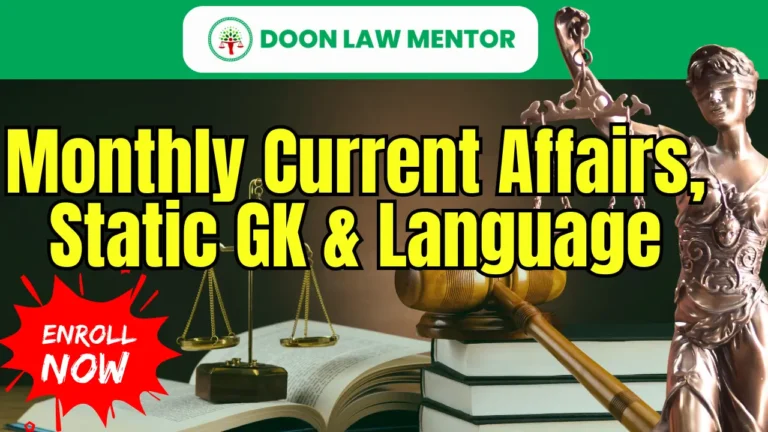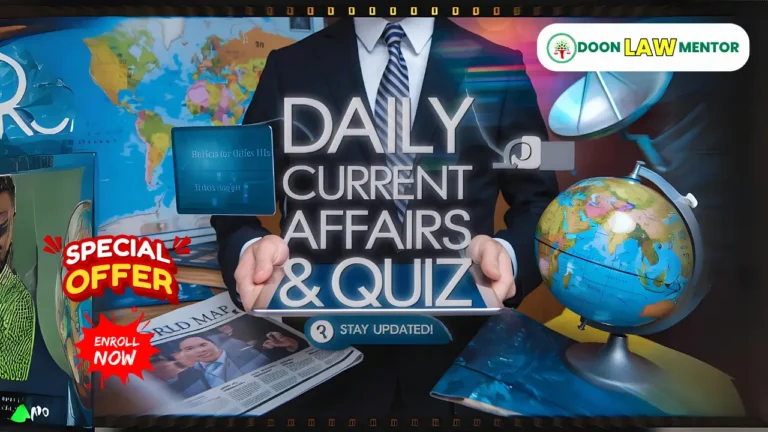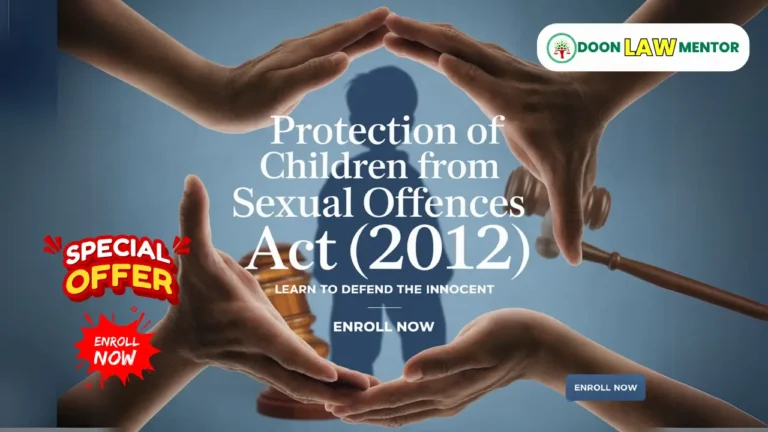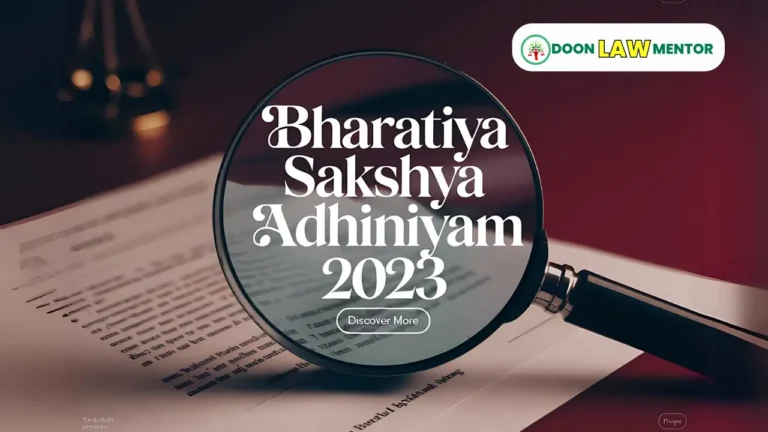The law on advertisement by advocates and law firms in India has sparked debate, especially with the recent DSK Legal video ad controversy. This blog explains the legal framework, the Bar Council of India (BCI) rules, and the implications of the DSK Legal case for legal professionals and judiciary aspirants.
Table of Contents
Introduction
The law on advertisement by advocates and law firms in India has long been a cornerstone of legal ethics, rooted in the belief that law is a noble profession, not a commercial trade. Recently, this principle came under scrutiny due to a controversy involving DSK Legal, a prominent law firm, and its promotional video featuring Bollywood actor Rahul Bose.
The Bar Council of India (BCI) responded with a strict warning and a show cause notice, reigniting debates about whether modern legal practices should adapt to digital marketing. For lawyers, legal professionals, and judiciary aspirants, understanding the law on advertisement by advocates and law firms is crucial, especially in the context of this high-profile case. This blog explores the legal framework, the DSK Legal controversy, its implications, and why it matters for the future of the legal profession in India.
1. What Is the Law on Advertisement by Advocates and Law Firms?
The law on advertisement by advocates and law firms in India is primarily governed by the Advocates Act, 1961, and the Bar Council of India (BCI) Rules. Under Section 49(1)(c) of the Advocates Act, the BCI has the authority to set standards of professional conduct and etiquette. Rule 36 of Chapter II, Part VI of the BCI Rules explicitly prohibits advocates from soliciting work or advertising, whether directly or indirectly. This includes:
- Circulars, advertisements, or personal communications.
- Interviews not based on personal relations.
- Publishing photographs or inspiring newspaper comments related to cases.
The rule aims to preserve the dignity of the legal profession and prevent it from becoming a commercial enterprise. However, a 2008 amendment allowed advocates to maintain websites with approved information, such as contact details and qualifications, marking a limited relaxation to accommodate digital presence. This framework forms the basis of the law on advertisement by advocates and law firms, but its enforcement has been tested by modern marketing trends.
2. The DSK Legal Video Ad Controversy
The controversy erupted when DSK Legal, a well-known law firm, released a promotional video on its Instagram handle featuring Rahul Bose. The video highlighted the firm’s 20 years of experience, suggesting that clients place “blind faith” in it due to its longevity. This move drew sharp criticism from the legal community, leading to the following developments:
- The BCI issued a show cause notice on March 20, 2025, accusing DSK Legal of violating Rule 36.
- The notice criticized the use of a celebrity endorsement and the implication of guaranteed success, calling it misleading and unethical.
- DSK Legal removed the video following the backlash, but the incident sparked a broader debate.
The BCI’s response included strict mandates, such as banning celebrity promotions, prohibiting digital ads, and ordering the removal of violative content. This controversy has brought the law on advertisement by advocates and law firms into the spotlight, questioning its relevance in a digital age.
3. Legal Basis and Landmark Judgments
The law on advertisement by advocates and law firms is supported by judicial precedents that emphasize the profession’s noble character:
- Bar Council of Maharashtra v. M.V. Dabholkar (1975): Justice Krishna Iyer ruled that “law is no trade, briefs no merchandise,” reinforcing the ban on commercial advertising to protect the profession’s integrity.
- Indian Council of Legal Aid & Advice v. Bar Council of India (1995): The Supreme Court described law as a “noble profession” with a public utility flavor, justifying restrictions on advertising to maintain dignity.
- V.B. Joshi v. Union of India (2008): This case allowed limited online presence through websites, reflecting a gradual adaptation to technology while upholding ethical standards.
These judgments underline that the law on advertisement by advocates and law firms prioritizes professional merit over marketing, a principle challenged by the DSK Legal case.
4. Arguments For and Against Advertising by Advocates
The DSK Legal controversy has fueled a divide within the legal community regarding the law on advertisement by advocates and law firms:
Arguments Against Advertising:
- Preserving Dignity: Many argue that advertising undermines the profession’s sanctity, turning it into a commercial venture, as seen in the BCI’s stance.
- Risk of Misleading Clients: Celebrity endorsements, like Rahul Bose’s, may create false expectations of legal success, violating ethical norms.
- Unfair Competition: Large firms with resources to advertise could overshadow smaller practitioners, disrupting equality.
Arguments For Limited Advertising:
- Client Awareness: In a tech-driven world, websites and subtle promotions can help clients find competent lawyers, especially in rural areas.
- Global Competitiveness: Countries like the US and UK allow advertising, giving their firms an edge, a point raised in the K. Vishnu v. National Consumer Dispute Redressal Commission (2009) case, where legal services were linked to consumer rights.
- Adaptation to Technology: The 2008 amendment shows a willingness to evolve, suggesting a need for updated rules to balance ethics and modernity.
This tension highlights the need to revisit the law on advertisement by advocates and law firms in light of digital trends.
5. Implications of the DSK Legal Controversy
The DSK Legal case has significant implications for the law on advertisement by advocates and law firms:
- Stricter Enforcement: The BCI’s swift action, including notices and mandates, signals a crackdown on digital promotions, affecting how firms operate online.
- Debate on Modernization: The controversy has reignited calls for amending Rule 36 to allow limited, ethical advertising, such as webinars or client testimonials, while avoiding commercialization.
- Impact on Firms: Smaller firms may feel pressured to stay competitive, while large firms like DSK Legal face reputational risks and potential disciplinary action, such as suspension under Section 35 of the Advocates Act.
- Judiciary Exam Relevance: For aspirants, this case is a key example of professional misconduct and ethics, likely to appear in exams under legal ethics or BCI rules.
The incident underscores the need for a balanced approach to the law on advertisement by advocates and law firms.
6. Global Perspective on Legal Advertising
Unlike India, many countries permit advertising with regulations:
- United States: The 1977 Bates v. State Bar of Arizona case upheld lawyers’ right to advertise under the First Amendment, leading to a robust market for legal ads.
- United Kingdom: The Solicitors Code of Conduct 2007 allows advertising if it’s not misleading, fostering competition.
- Australia: Rules permit ads if truthful and not offensive, balancing ethics with marketing.
In contrast, India’s strict ban reflects its unique view of law as a public service. The DSK Legal controversy raises questions about whether India should adopt a hybrid model, adapting the law on advertisement by advocates and law firms to global standards while preserving ethical integrity.
7. Future of Legal Advertising in India
The law on advertisement by advocates and law firms may evolve as technology advances. Potential changes include:
- Revised Guidelines: The BCI could update Rule 36 to permit controlled digital presence, such as LinkedIn profiles or educational content, with oversight.
- Training Programs: Legal professionals may need training on ethical marketing to comply with new rules.
- Public Consultation: Involving stakeholders could balance tradition with modernity, addressing concerns raised by the DSK Legal case.
For judiciary aspirants, staying updated on these developments is essential, as they may shape future legal ethics questions.
Conclusion
The law on advertisement by advocates and law firms in India, rooted in the Advocates Act, 1961, and BCI Rules, aims to protect the profession’s dignity, as reaffirmed by cases like Bar Council of Maharashtra v. M.V. Dabholkar. The DSK Legal video ad controversy, involving a celebrity endorsement, tested these principles, prompting a strong BCI response and sparking debate.
While the ban prevents commercialization, it faces challenges in a digital world where client awareness and global competition demand adaptation. For lawyers and judiciary aspirants, this case highlights the importance of ethical conduct and the need to navigate the evolving law on advertisement by advocates and law firms. As India considers modernization, the balance between tradition and innovation will shape the future of legal practice.
Call-to-Action
Want to master the law on advertisement by advocates and law firms for your Judiciary Exam? Join Doon Law Mentor’s Courses for expert guidance and study materials! Follow @doonlawmentor on Instagram for the latest updates!
FAQs
- What is the law on advertisement by advocates and law firms in India?
The law on advertisement by advocates and law firms prohibits soliciting work or advertising under Rule 36 of the BCI Rules, governed by the Advocates Act, 1961. - What caused the DSK Legal controversy?
DSK Legal’s promotional video with Rahul Bose implied client trust based on experience, leading to a BCI notice for violating advertising rules. - What did the BCI do about the DSK Legal ad?
The BCI issued a show cause notice on March 20, 2025, ordering the ad’s removal and banning celebrity promotions. - Why is advertising banned for advocates?
To preserve the profession’s dignity and prevent misleading clients, as ruled in Bar Council of Maharashtra v. M.V. Dabholkar (1975). - Can advocates have websites under the law?
Yes, since the 2008 V.B. Joshi v. Union of India amendment, advocates can maintain approved websites with contact and qualification details. - What are the arguments for allowing legal advertising?
It can increase client awareness and competitiveness, especially in a digital age, as seen in global practices. - How does the DSK Legal case affect legal firms?
It may lead to stricter enforcement and push firms to rethink digital marketing strategies within ethical limits. - What is the global perspective on legal advertising?
Countries like the US and UK allow regulated advertising, contrasting with India’s strict ban, raising modernization debates. - Why is this topic important for judiciary exams?
It tests knowledge of legal ethics, BCI rules, and landmark judgments like Indian Council of Legal Aid & Advice v. Bar Council of India (1995). - What might change in the future for legal advertising?
The BCI may revise Rule 36 to allow controlled digital presence, balancing ethics with modern needs.
#LegalAdvertising, #BCIRules, #DSKLegalControversy, #AdvocateEthics, #IndiaLaw #DSKlegal #barcouncilofindia #doonlawmentor








